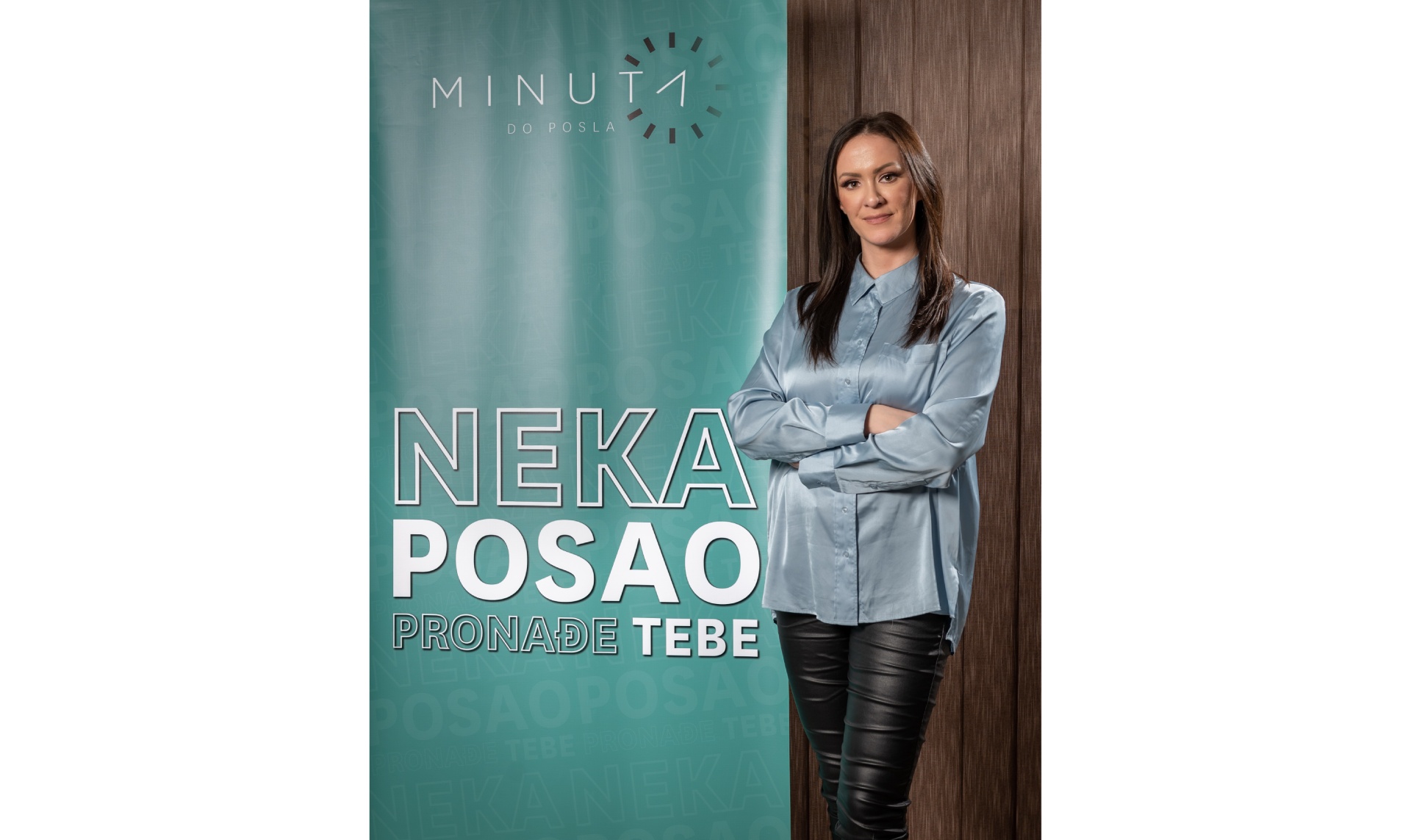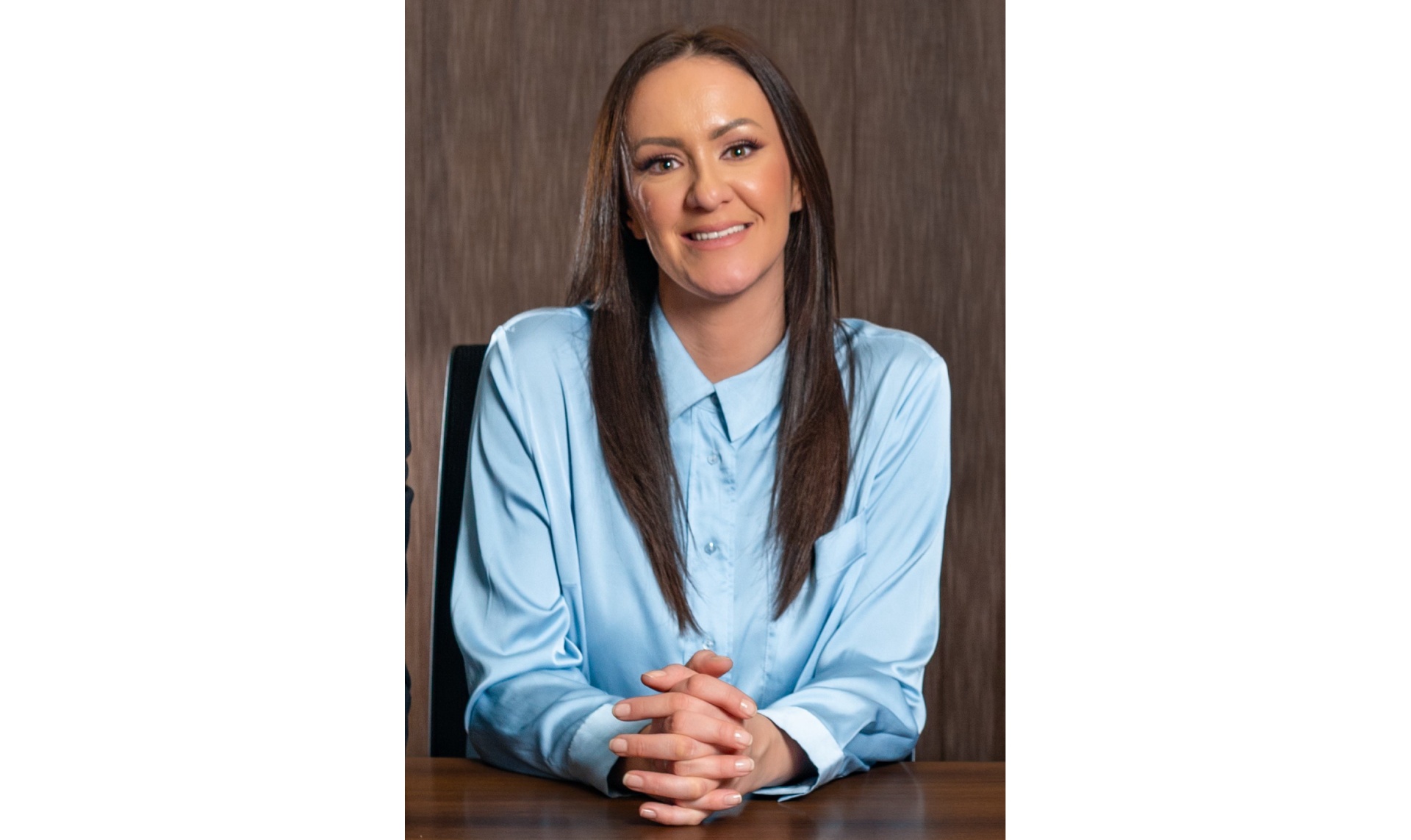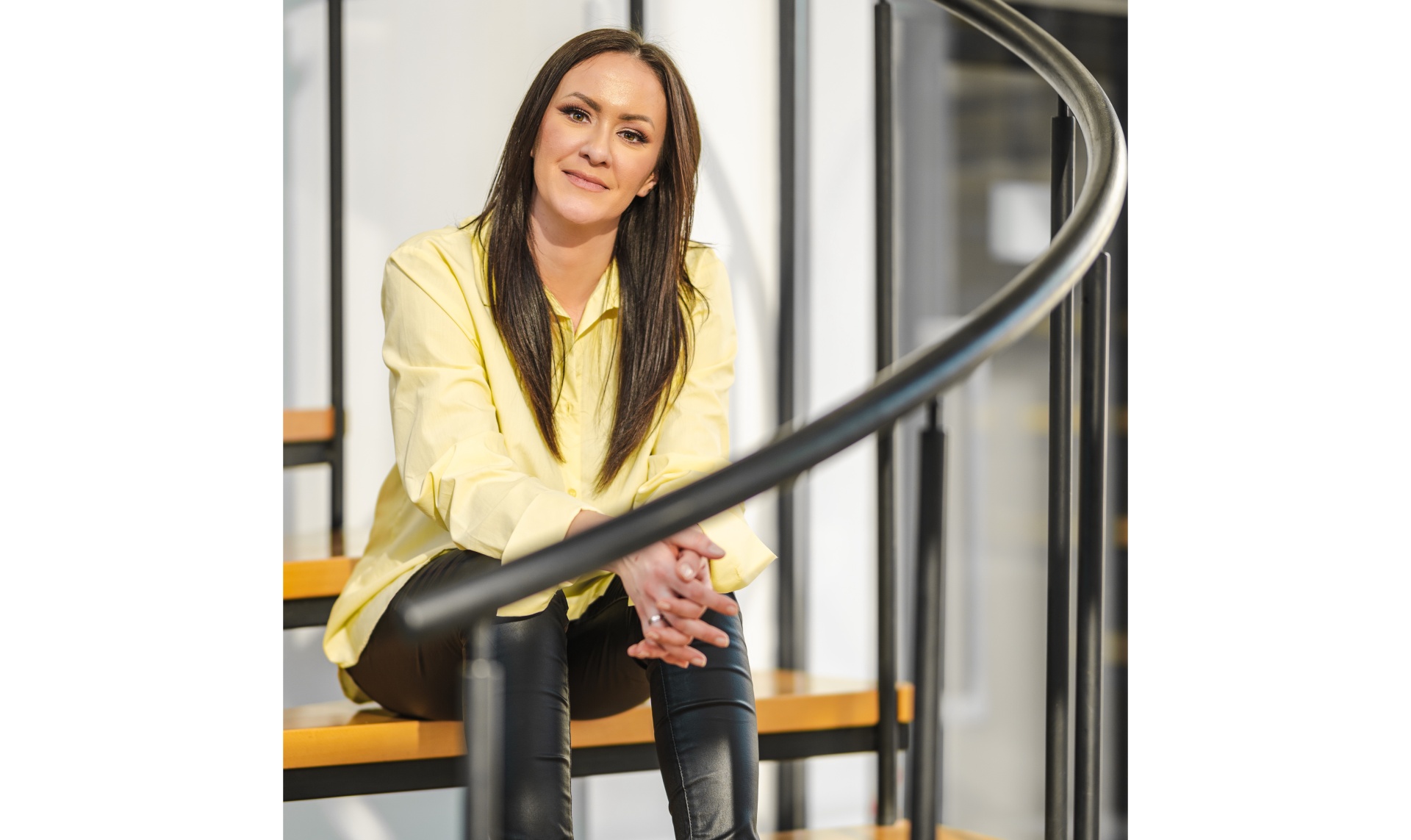Interview with Bojana Perović
– founder of LLC “Minuta Consulting” agency –
In today’s ever-changing labor market, finding our ideal job can be quite a challenge. However, the key is to start with self-exploration – understanding our strengths, weaknesses, values, talents, and skills. Bojana Perović, a professional recruiter and founder of “Minuta Consulting” in Nikšić, emphasizes this point. Bojana and her team have successfully matched countless candidates with their dream jobs and always have new and exciting projects in the pipeline. Bojana is also a sought-after speaker at conferences and seminars. Ultimately, everyone deserves a job they love, and Bojana’s “Minuta Consulting” has the solution for that.

Bojana, “Minuta Consulting“, has been making a mark in the industry for the past six years. Your presence as a lecturer at seminars and workshops focusing on career development has been notable. Through your blog “Coffee with a Recruiter,” you provide invaluable insights into business career planning, job hunting, and other crucial aspects often overlooked in conventional education. How did this remarkable journey begin?
Over 15 years ago, I received an invitation from Disney Cruise Line’s recrutier to work in the gift shop aboard their cruise ship. This experience sparked my passion for recruitment and inspired me to integrate my love for psychology into this field. After my time on the ship, I pursued opportunities in recruiting, starting with an internship at an employment agency and eventually securing a full-time role. However, after becoming a mother, I yearned for a career that could harmonize with my aspirations. It led me to embark on a journey with Upwork, where I undertook various projects and established the “Jobs Abroad” Facebook page to share opportunities with others. Witnessing the challenges individuals faced in their job search, I launched a blog as a resource hub and extended my reach through LinkedIn. As my endeavors gained momentum, my business evolved into ”Minuta do posla” (“One Minute to a Job”) and I began conducting seminars, workshops, and lectures on job hunting and career development.
Bearing in mind your extensive experience in recruiting and working with young people, what advice would you give to young people who are graduating from university and are facing the challenges of finding employment in today’s competitive labor market? How do we avoid the not-pleasant question, “And now what”?
Having worked in recruitment for several years and having the opportunity to guide young individuals, one question frequently comes up. I believe that the first step, self-exploration, is crucial. It’s essential for young people to thoroughly delve into their strengths, weaknesses, values, traits, talents, and skills. They should ask themselves, “What truly motivates me? What do I enjoy doing? What am I skilled at?” It’s also vital for them to understand that obtaining a degree is just the beginning of numerous possibilities. The knowledge gained at university can be applied across various industries. In today’s world, the lines between different sectors are becoming blurred, and interdisciplinary expertise is precious. A psychology graduate, for instance, can work in HR, marketing, education, or IT.
Furthermore, as we live in a digital age, many jobs are moving online, with companies embracing remote work. It means that young people can work for firms worldwide from the comfort of their homes. One of the most important pieces of advice is for them to find a specific niche that interests them and gain expertise through experience. Specializing in a particular field can give them an edge in the job market. For example, while marketing is broad, digital marketing is more focused, and content writing for IT recruiting agencies is an even more specific niche. In narrow niches, there’s less competition, providing a competitive advantage and better earning potential.

You are a certified NBI counselor. You help candidates in their career profiling by assessing their brain preferences using the NBI questionnaire. How does this assessment take place?
At the moment, I am the only certified NBI consultant in Montenegro. I specialize in using Neethling Brain Instruments (NBI) to help individuals gain insights into their brain preferences. It allows them to make informed decisions, particularly in terms of their career and everyday life. The NBI questionnaire is designed based on the whole-brain thinking model, which has evolved from extensive experiments conducted in the last century. These experiments revealed that the left and right brain hemispheres serve distinct functions.
Candidates start by completing an NBI questionnaire that delves into how they approach problems, make decisions, communicate, and tackle challenges. Once the questionnaire is completed, the results are meticulously processed and analyzed. Each candidate receives a comprehensive report detailing their dominant thinking styles, categorized as analytical (L1), processual (L2), ideational (R1), and social (R2). Upon receiving their results, we review and discuss how their brain preferences may influence their career choices. For instance, individuals with a solid analytical preference may excel in fields requiring detailed analysis and problem-solving, such as engineering, data analysis, or finance. Conversely, those with a predominant ideational preference may thrive in creative industries like marketing or design.
This assessment not only assists candidates in leveraging their natural strengths in their professional lives but also helps them identify areas where they may benefit from developing additional skills or learning to collaborate with colleagues possessing different thinking styles effectively.
The labor market has changed significantly with the emergence of the so-called artificial intelligence. What, in your opinion, are the main advantages and challenges brought by the integration of artificial intelligence in the work environment?
Today, completing routine tasks has never been easier, thanks to Artificial Intelligence (AI). AI can take over repetitive tasks, allowing us to focus on more creative and strategic activities. For instance, it processes large amounts of data faster and more accurately than humans, leading to improved efficiency, faster decision-making, and higher productivity at lower costs. It can lead to happier and more fulfilling work experiences.
AI has also found its way into employment processes such as writing CVs, cover letters, and interview preparation, leading to a surge in its application. However, this has led to a downside. Lack of proper knowledge on how to use AI has led to a homogenization of cover letters and LinkedIn profiles, making it easier for recruiters to spot generic content.
It’s important to note that current AI models, such as ChatGPT and Bard, are advanced prediction engines working on algorithms, not cognitive beings from our dreams or movies. They are based on machine learning and a vast amount of calculations, but they do not “think” in the way we imagine.
The rise of AI also raises concerns about job security, especially for roles involving routine tasks. Legal risks are also a factor, as these models are often trained on internet content without the consent of the content’s owner, raising privacy and copyright concerns and potential lawsuits against organizations using AI.
Another challenge is a noticeable reduction in individual creativity and thought processes. To use AI effectively, it’s important to know how to ask good questions and communicate with it in a way that produces the best results. After all, it’s people who properly use AI, not AI replacing humans.

What advice would you give to middle-aged people who want to change careers?
I believe that making a career change in middle age can be intimidating, but upon further reflection, every stage of our careers involves some form of transition. Whether we move between roles or industries or adapt to new technologies and market trends, change is inevitable. That’s why I recently launched a 7-day career change challenge on my website, and to my surprise, around 100 people signed up within 24 hours. This overwhelming response reaffirms the pressing need for support in this area.
If you’re considering a midlife career shift, it’s crucial to uncover your unique story, as a career change isn’t starting from scratch. Each of us possesses a distinctive background and diverse experiences that make us valuable in the job market. Recognizing the worth of your past work and learning how to effectively communicate your narrative to potential employers through a polished CV, cover letter, LinkedIn profile, and interviews is essential. Employers seek tangible evidence of our past achievements, for example – this is what makes individuals with a background in sports solid candidates.
By middle age, we should understand ourselves well enough not to leave things to chance. Engaging in self-exploration and understanding our thinking preferences can help identify which aspects of a new career will suit us and which areas may require outsourcing or delegation.